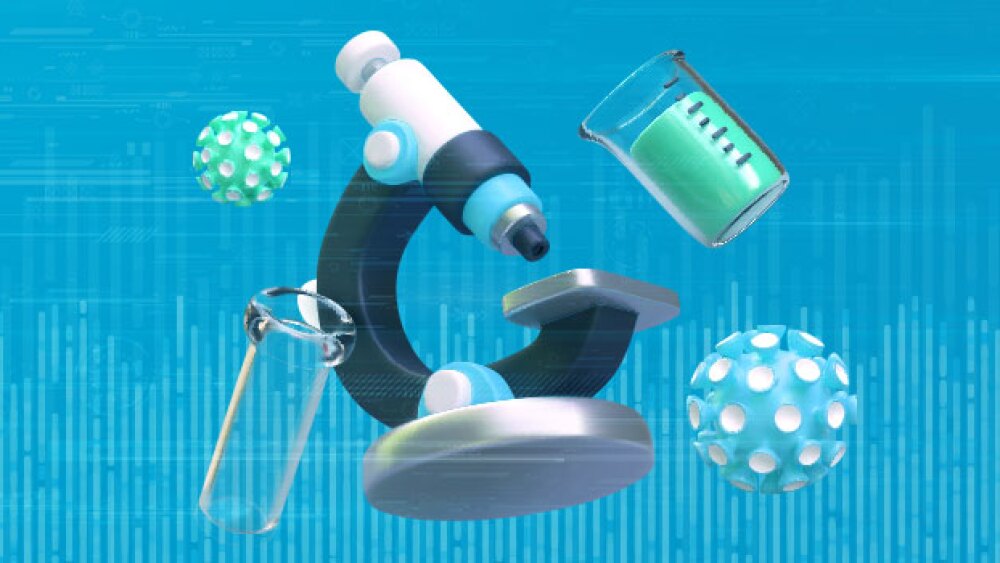As congressional pressure increases on WuXi AppTec and other China-based companies over alleged ties to the Chinese government, India’s contract development and manufacturing organization sector could benefit.
China-based contract manufacturer WuXi AppTec has been the focal point of scrutiny from Congress for months. A House bill, the BIOSECURE Act, has labeled it a “company of concern” due to its alleged ties to the Chinese government and potential threat to U.S. national security. However, multiple biopharma companies depend on WuXi for critical research, development and manufacturing. The prospect of restricting WuXi’s vast scope of work has caused uncertainty in the market, but it has also opened the door potentially for some competitors to help fill the gap.
Gil Roth, president of the Pharma & Biopharma Outsourcing Association, told BioSpace that the fallout from the BIOSECURE Act could be “very significant” for both contract development and manufacturing organizations (CDMOs) and customers. If the bill is passed in its current form, it could “create a dynamic environment if . . . customers need to find other contract service providers,” Roth said. A recent GlobalData report found the BIOSECURE Act could affect more than 120 U.S. biopharma drugs partnered with Chinese companies “of concern” named in the bill, of which about half are in clinical trials and a third are in early-stage preclinical studies and discovery.
Thus, replacing the critical services provided by WuXi AppTec and others to American companies will be no small feat, especially as U.S. drug shortages are now at an all-time high. But the volume of business the U.S. biopharma sector is currently providing Chinese CDMOs could be a lucrative win for other contract manufacturers--especially those in India. Pushpa Vijayaraghavan, director of healthcare and life sciences at consulting firm Sathguru, told BioSpace in an email that Indian CDMOs have been trying to get a larger share of the U.S. market over the past few years.
“The most recent wave of developments around WuXi could turn the tide,” Vijayaraghavan said. “Their approach has been multi-pronged—increased commercial thrust, clear inorganic focus on bridging capability gaps, organic capacity expansion, developing pilot capacity closer to the customer and deepening expertise in areas where demand is likely to expand.”
STRONG U.S. TIES
In May 2024, the House Committee on Oversight and Accountability voted overwhelmingly to approve a new draft of the BIOSECURE Act, which sets a Jan. 1, 2032, deadline for U.S. drugmakers to cut their ties with WuXi AppTec, WuXi Biologics and other Chinese biotech companies. The draft also bans entering into new agreements—or extending or renewing existing contracts—with these Chinese companies or to farm out these contracts to other potential partners.
The initial bill named four companies of concern: WuXi AppTec, Beijing Genomics Institute, Complete Genomics and MGI. The latest draft has been amended to explicitly identify WuXi Biologics. While it remains unclear whether the BIOSECURE Act will become law in its present form, it was hit with a legislative setback earlier this month when the House Rules Committee left the bill out of the final list of amendments to be discussed for inclusion in the National Defense Authorization Act for Fiscal Year 2025.
The bill aims to ensure that taxpayer money isn’t going to fund biotech-aligned companies that can threaten national security. Specifically, the legislation would prohibit federal contracting with companies tied to “foreign adversaries,” including WuXi AppTec and other Chinese companies. If the act becomes law, it will prevent biopharma companies with contracts with these companies of concern from obtaining U.S. government contracts.
WuXi has built a large presence in the U.S. with more than a dozen facilities handling everything from molecular screening to manufacturing. The company is expanding its U.S. presence, notably with a new 190-acre pharmaceutical manufacturing campus in Middletown, Delaware.
WuXi is “heavily embedded in the U.S. medicine chest, making some or all of the main ingredients for multibillion-dollar therapies that are highly sought to treat cancers like some types of leukemia and lymphoma as well as obesity and HIV,” according to The New York Times, which cited one estimate that the Chinese CDMO has been involved in developing one-fourth of the drugs used in this country.
Bikash Chatterjee, president and chief science officer of consulting firm Pharmatech Associates, agreed that Wuxi is entangled with U.S. biopharma. “Banning them would have a significant impact on any organization with development programs funded through government grants or if they plan to engage the government as a customer for their product,” Chatterjee told BioSpace in an email. “Given the high cost of investment and debt financing, the cost to change development partners midstream would likely force drug sponsors to make some difficult decisions regarding which assets in their portfolios to develop.”
At the same time, recent reporting from Reuters alleges that WuXi AppTec shared the data of a U.S.-based client with the Chinese government without the client’s consent, which may have given biotech companies additional incentives to break ties with Chinese biotechs.
“If I’m a venture investor or a shareholder in an emerging pharma-biotech, and even a Big Pharma company, and my government is citing examples of information sharing with specific companies that happen to be Chinese owned, it is concerning and it’s hard to overlook,” Brian Scanlan, partner at Edgewater Capital Partners, told BioSpace.






